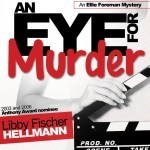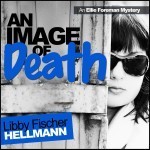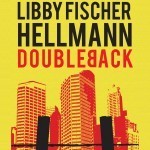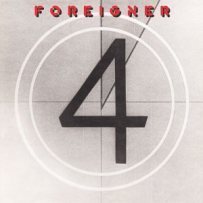Libby Fischer Hellmann's Blog, page 56
August 27, 2012
Buying 5-Star Book Reviews
Have you read Lee Goldberg’s take on the NY Times article about buying 5-Star reviews?
I highly recommend it… not the practice… Lee’s blog. He pretty much sums up my opinion.
August 26, 2012
6 Reasons to Write Short Stories
A writer’s journey often takes them to unexpected places. I know mine has. Like many beginning writers, I decided I could write a novel fresh out of the gate. So I did. Funny—no one wanted it. At the time I was irritated. Why not? I’d just spent four months working on what I thought was going to be a NY Times Best Seller.
The answer? I didn’t know what I didn’t know: that I hadn’t learned the craft of fiction, that I was getting in the way of my characters, that the plot was unbelievable, at times even (horrors!) trite. I joined a writers’ group, and slowly my process started to gel. In fact, sixteen years later I’m still in the same group.
Nonetheless, writing my first short story, “The Day Miriam Hirsch Disappeared”, was pretty much an accident. My son was about to be a Bar Mitzvah, and one of his gifts was a pictorial history book called The Jews of Chicago. As I flipped through it, some of the photos grabbed me. They were taken in Lawndale during the Thirties, which, at the time, was a thriving Jewish community in Chicago.
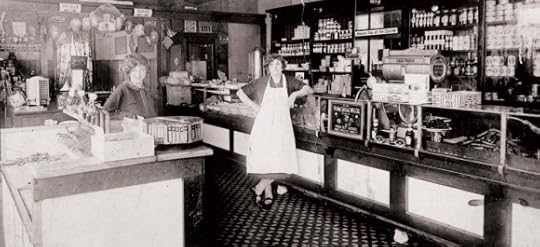
After staring at them for days, I ended up writing a short story set in that time and place. I had no idea it would win two contests, and would turn out to be the prequel to my Ellie Foreman series, which itself is the prequel to my Georgia Davis series.
(BTW, Miriam is forever free on Amazon, Apple, and Kobo.)
Since that time I’ve written over 20 short stories. I’m hooked on them, and I’d like you to be as well. Short stories are magic—and they’re great for your career. Here are 6 reasons why.
#1: They’re short.
People say it’s tougher to write short than long. Don’t believe them. The best thing about short stories is that they’re short. I like to say that a novel is like a marriage, but short stories are like an affair. I can get in and out of one in 6 weeks. During those 6 weeks, I’m full of passion, awareness, and energy. Then it’s over, but unlike an affair, you have something tangible to show for it.
#2 They deepen your craft.
Short stories help you master the elements of craft. Every word counts, and that includes setting, character description, and action. In fact, the entire narrative (and dialogue) has to be crisp, concise, and meaningful. If you can do it well in short form, there’s no reason you can’t expand it to a novel.
#3 Experimentation
My favorite reason to write short stories is to explore new characters, plot lines, and voices. Often in the middle of writing a novel, I’ll get an itch of an idea that won’t leave me alone. Writing a short story lets me scratch that itch. Plus, it gives me a break from my novel, and I come back to it refreshed. The first hard-boiled piece I wrote was a short story, and several times I’ve tried out historical time periods that I later expanded to a novel.“The Whole World is Watching”, for example eventually developed into Set The Night on Fire.
#4 Name recognition
I published 2 short stories before my first novel came out. When it did, readers had seen my name around, and I like to think they realized I was taking my writing seriously. That recognition gave me a bit of an advantage when An Eye For Murder was released.
#5. Filling in the series/Starting a new one
Most novelists publish a new book once a year, but what happens to your characters inbetween? Short stories are a great way to fill in. I wrote several Georgia and Ellie stories just to remind my readers they were still around. They’re also a wonderful way to answer questions for your readers. The Murder of Katie Boyle explains how Ellie and Georgia just met, and War Secrets, which will be out in an MWA anthology next year, answers one of the questions I deliberately left hanging in A Bitter Veil. Plus, you never know when a story (like Miriam) will propel your career onto an entirely unexpected path.
6. Recycle Ability (that should be one word, don’t you think?)
Most short story contracts bind you for one or two years, but after that, the story is yours to do with what you wish. I’ve offered reprints to other anthologies, bundled them into collections, and have seen audios produced. In fact, a short story is the gift that keeps on giving… indefinitely.
Enough reasons? Start writing. I’ll gladly read them.
PS In case you’d like to investigate further, you can find 15 of my stories in NICE GIRL DOES NOIR here and here, and within a week or two, on Audible.
August 24, 2012
Audios On Sale: Ellie Foreman, Veil, Doubleback
So Audible is having a HUGE end of summer sale, and 5 of my audiobooks are included! They’re priced at $5.95 each (or less if you’re a member…)
The Titles include:
Libby
The sale goes through next weekend. I hope you’ll take advantage. Can’t beat the price!
August 16, 2012
Look Ma, I’m an App!
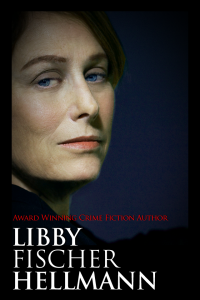 Hi, all, I am now an App and you can download me right here! Stay up to date with my books, my events, social media, and more. Not only can you buy my books and audios directly through the app, but you can send me messages and I can send you the same.
Hi, all, I am now an App and you can download me right here! Stay up to date with my books, my events, social media, and more. Not only can you buy my books and audios directly through the app, but you can send me messages and I can send you the same.
Hope you’ll download me— it’s absolutely free! Right now I’m live on Android devices (which includes Kindle Fires, of course)… but in a month, I’ll be on Apple iPhones and iPads, too.
Click here for more info and to download the Libby Hellmann app…And thanks.
View Libby’s book titles, read excerpts and see details and purchase them through your mobile device.
Stay connected with her upcoming events, social media, and photos/videos.
Register for her newsletter to stay connected through periodic e-mail updates!
…and MUCH MORE!
August 14, 2012
You Say You Want A Revolution…
 Although A Bitter Veil has been out for several months, I realized I’ve never discussed it here. Especially in terms of how it meshes with what I think are important elements of the craft of writing. So if you’re interested, read on.
Although A Bitter Veil has been out for several months, I realized I’ve never discussed it here. Especially in terms of how it meshes with what I think are important elements of the craft of writing. So if you’re interested, read on.
As crime writers we learn early that “conflict” is the most essential ingredient of fiction. We learn that there must be conflict on every page, even if a character just wants a glass of water but can’t get it. Over the years, I’ve taken that lesson to heart. I’m always looking for conflict, large or small. Recently I may have taken it to the extreme by writing about revolutions. In fact, my publisher says I’m in the midst of my “revolution trilogy.” (She’s not far off—my next book will be set largely in Cuba.)
But I come by it more or less honestly—I was a history major in college, and I still love to examine the past and how it affects the present. And what triggers more conflict than a revolution? Whether it’s the French, Russian, Cuban, Chinese, American—well that one was a little different—or what we’re now calling the Arab Spring, nothing shakes the foundation of a society more than internal strife.
A revolution provides conflict that can affect an individual, a family, a village, a government, and its relation to the rest of the world…in a word, everything. It is a time where people can prove to be cowards or heroes, informants or patriots. People form unusual relationships, while others are torn apart. Love can flourish, but so can hate. A member of one family can be an enemy to the others—to the point of violence or death.
The rumbling of discontent always precedes the revolution, and there’s usually an overreaction afterwards. In the French, Russian, Cuban, and Chinese revolutions, a period of extremism followed the overthrow of the king, czar, or government. And those periods can prompt even more conflict and chaos. Even a revolution that didn’t quite make it—for example, the period of the late Sixties in the US, which was the setting for my previous thriller, SET THE NIGHT ON FIRE—can be a powerful source of turmoil.
That was one of the reasons I chose to write about Iran. The Islamic Revolution profoundly changed the Iranian people and their culture. Persia has been invaded many times over the centuries, but invaders tended to assimilate the magnificent Persian culture rather than imposing their own on Persia. Not this time. Was it because the revolutionaries were insurgents and not foreign invaders? I’m not sure, but it was a compelling question. Plus, the revolution was relatively recent. Fortunately or not, the Iranian revolution has been of the best-covered revolutions in history. Most of us can remember TV news footage of the Shah piloting his plane out of Iran, and the return of Khomeini a few weeks later. It was not difficult to find films, books, articles, and other materials that made my research relatively easy.
The other reason I chose to write about Iran was personal. It’s a strange story, and I still am not sure how I got it wrong. I went to a high school reunion years ago, and one of my former classmates told me how she’d fallen in love after college with an Iranian and moved with him to Tehran before the Shah left. Afterwards her life became difficult and ultimately impossible, and she came back to the States. I decided to fictionalize her story and when it was done, I, of course, called her to let her know what I’d done. When we finally connected, it turned out that she hadn’t gone to Iran at all. She’d gone to India! My first reaction was disbelief…how had I screwed that up? Clearly, it was a subconscious error. After a while, though, I realized it didn’t matter. I’d written the story I was supposed to write.
However it developed, though, it’s never been my intention to write a political screed. For me story trumps everything, but if it can be enhanced by conflicts large and small, so much the better. That’s what I hoped to accomplish in A BITTER VEIL.
August 7, 2012
A 2 Minute MUST SEE
July 31, 2012
Odds and Ends
Tough words about books and social marketing in The Guardian by author Ewan Morrison. Here’s how it starts:
“I’m convinced that epublishing is another tech bubble, and that it will burst within the next 18 months. The reason is this: epublishing is inextricably tied to the structures of social media marketing and the myth that social media functions as a way of selling products. It doesn’t, and we’re just starting to get the true stats on that. When social media marketing collapses it will destroy the platform that the dream of a self-epublishing industry was based upon.”
It goes downhill from there. He cites a bunch of statistics and facts he’s ferreted out to advance his argument. You should read it.
What do I think? Glad you asked. I think it’s possible to prove anything you want to prove these days in book publishing. The book industry is still in a state of chaos, and I doubt it will settle down for a while. So it’s possible to allege pretty much anything you want, even find the facts to back it up. However, some of the research he cites ( ie, from the Kindle Boards) is anecdotal at best, egoboosting at worst. In other words, flimsy. For example he says only 70 authors sell 800 books a month. I know plenty of authors who sell that and more. They just don’t broadcast it.
However, the fact remains that just as in traditional publishing, not everyone is going to prosper in the indie world. To be successful an author has to write what people WANT to read whether it’s traditionally or indi published. Ie a well written story.
There was also no mention of Goodreads, which I believe is becoming more valuable as a “gatekeeper” for our new world. As I get more positive ratings and reviews there, I’m beginning to notice an uptick in my sales. I hope it continues. I do think we need a gatekeeper or two.
My friend, author Michelle Gagnon has turned to writing YA thrillers, and she’s got a new one coming out next month. It looks terrific — I can’t wait to read it — but that’s not the news… Right now her publisher is offering a FREE novella called NO ESCAPE. It’s a prequel to DON’T TURN AROUND and includes a sneak preview of it. Btw, the book got a starred review in Kirkus, no easy feat. Check out the #FREE novella here in the US and here in the UK.
Finally, I have a new collection out: The Ellie Foreman Series: Boxed Set. All four of the Ellie Foreman novels are included:
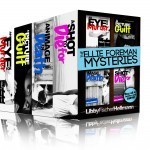
AN EYE FOR MURDER
A PICTURE OF GUILT
AN IMAGE OF DEATH
A SHOT TO DIE FOR
You can find it on Amazon, B&N, iBooks, and Kobo (somewhere). Enjoy!
July 26, 2012
Michael Black Op-Ed
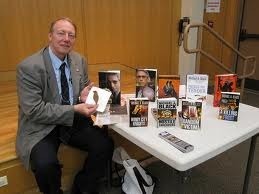 Does everyone know that Chicago author and former police officer Mike Black wrote an Op-Ed that appeared in the NYTimes today? Thoughtful, perceptive, and totally sensible. I am so proud to know him. And thanks, Sara Paretsky, for the heads-up.
Does everyone know that Chicago author and former police officer Mike Black wrote an Op-Ed that appeared in the NYTimes today? Thoughtful, perceptive, and totally sensible. I am so proud to know him. And thanks, Sara Paretsky, for the heads-up.
July 22, 2012
No Ordinary Book Club
[image error]This essay was first published in Crimespree Magazine in 2005, but since I just got the rights back to AN IMAGE OF DEATH, I thought I’d share it. My visit there still resonates.
The buildings rose out of the prairie as though the ground had suddenly coughed them up from some nether region. A few homes were scattered nearby, and a school sat to one side, but the compound, about twenty minutes from Racine, Wisconsin, loomed beside the road like a behemothwarning us we were entering a different world. We parked in an adjacent lot and climbed out. I’d been told to leave my purse in the car, so I swung my backpack up on my shoulder and headed inside.
I was surprised by the seemingly low level of security. Just one small metal detector, no search wands, no dogs. A beefy looking man behind a counter asked to see a photo ID. All the doors were locked, though, even the ladies room, and to get from the entrance hall into the meeting room, you passed through a small antechamber with glassed in walls and two doors. One door was locked before the other was opened.
I glanced into the meeting room. Almost forty women were there, waiting quietly, apparently content to let time pass. Clearly, this was no ordinary book club.
I’d been asked to come to the Robert Ellsworth Correction Center for women to talk about my third novel, An Image of Death. The invitation had been issued via Midge Green, the CRM at Barnes and Noble, Racine, WI. She and some of her friends had been visiting the jail regularly, bringing books and discussing them with inmates.
Ellsworth is home to approximately 300 female offenders. It’s a minimum security facility, and some of the women are on work release programs at nearby factories. About a year ago, two employees at the jail, Pam Petersen and DeNeal Erickson, decided to start a Book Club for the inmates. Within six months there were 25 members, and after a year, 50. Typically, the women would read the selected book, then divide into smaller groups to discuss the issues raised. Thanks to contributions and fund-raisers by B&N and others, the women have read several works, including Motherland by Fern Schumur Chapman and Seedfolks by Paul Fleischman. Image, however, was the first crime novel on their list.
Crime fiction for criminals? What was that all about? Who was I kidding? What could I, a woman who still gets the shakes when I get within twenty feet of a cop, tell them about crime or the criminal justice system?
The answer, I was told, was in Image. In the book an unidentified package is dropped on the doorstep of my amateur sleuth, video producer Ellie Foreman. Inside is a surveillance video that, when Ellie plays it, shows the murder of a young woman. Who that woman was and why the tape ended up with Ellie is the crux of the plot.
I’m not giving too much away by revealing that the woman killed on the tape wasn’t from this part of the world. Arin grew up in Armenia, and after marrying a Russian soldier, she moved to the Republic of Georgia. She lived in the lap of luxury as the wife of a Soviet army officer for a brief time—until the Soviet Union collapsed. Suddenly, her world was thrown into chaos, every trace of stability stripped away. Life became brutal, survival precarious. The choices facing Arin (and her best friend Mika) were made out of desperation. Arin became a diamond courier; Mika was forced into prostitution. Both had to contend with men whose need to survive themselves made them behave in aberrant, cruel ways.
It was this concept of choices—or the absence of them—that resonated with the teachers at the jail and prompted the invitation. The offenders in Ellsworth could relate to bad choices—or none at all. They wanted to hear about women in a similar predicament, explore their actions, compare them to their own. Would I please talk about that?
And so I nodded to the guard, sucked in a breath, and headed into the antechamber.
The first thing I noticed were three huge displays on mural paper taped to the wall. The first was titled “Russian Mafia”; the second “Foster Care” (Ellie is producing a video on the foster care system while she’s sleuthing); the third was “Transitioning back to mainstream society.” Each display was part photo montage, part hand-written text. As I browsed, I noted a lot of information about each topic: facts, figures, conclusions. Some of the information, especially on the “Transitioning” display was personal. They’d also drawn up a character tree, with each of my main characters and their character traits listed.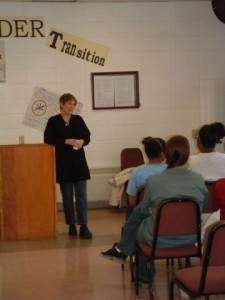
I started by telling them how and why I’d written An Image of Death—that I was intrigued by what happens to a society in the throes of radical change and that the best way to explore that was to tell the stories of a few individuals in the midst of the maelstrom. I talked about the characters and the role each played in the book. I talked about the notion of choices, and how Arin and Mika felt they didn’t have any. Almost every woman in the room nodded at that. One woman told me she felt I was writing her story. More nods all around. I decided it was time to let them talk, so I asked for questions.
I was overwhelmed by the response. It seemed as if every woman in the room had something to ask or say. Some asked questions about writing. Others asked questions about the characters. One woman told me she liked the information about foster care because she had two kids in the system now, and her goal was to reunite her family when she got out. Another woman asked how I did research, and another asked why David, Ellie’s boyfriend, made the choices he did.
I asked them about the displays. What had they learned about the Russian mafia, foster care, and transitioning back into society? Hands shot up. They’d learned that the Russian mafia wasn’t so much a monolithic organization as disparate gangs of thugs. That the violence and brutality they sanctioned made the Italian mafia look like kindergarten kids. That the foster care system wasn’t perfect, and in fact, was losing funding at an alarming rate, but it was better than the systems in other countries.
But the most touching moments were their comments about transitioning back into society. Person after person recounted how much Pam and DeNeal, the women who started the Book Club, had done for them. How valued they felt… some for the first time in their lives. How they felt that their opinions mattered. How wonderful the personal attention felt. How they would never forget the efforts their “teachers” had put into the Book Club and that they would carry this new found confidence back into the world. Pam and DeNeal were in the room, listening. They didn’t show much of a reaction, but I felt my throat get hot.
After the presentation, while I signed copies of Image, at least five women came up to tell me their stories. One of them said she was in her early sixties, but she didn’t look a day over fifty. Her hair was perfectly coiffed, her make-up expertly applied. None of the women wore uniforms, and she was dressed in a clean blouse tucked into a pair of slacks. She’d been seated in the first row and had said several times how much she connected to Image. When I asked why, she told me she’d been a business woman who owned three beauty salons outside Milwaukee. She’d married late in life—a man from Croatia. The relationship soon soured; he had a violent temper. When the US sent troops into Bosnia twelve years ago, he became enraged. He went after her and beat her for three hours. Something inside her snapped, and she grabbed a kitchen knife and stabbed him to death. She got twenty years, but after serving twelve of them, her sentence was reduced. She was getting out soon, she said, but while she was still there, she had started a salon at Ellsworth, and was teaching the women how to do hair.
I wished her luck. She wished me back the same.
As Midge drove us back to Racine, I tried to process the afternoon. Much of it was a blur—it had gone by so fast. The women asked more questions and were more receptive than I’d expected. I’d been concerned they wanted me to say something profound about crime fiction—after all, it’s not every day a crime fiction author talks to prison inmates—and I’d felt unequal to the task. But that wasn’t what happened. As we got to know each other, I felt more relaxed and sure-footed.
Still, I realized that, in one respect, I’d been right. The women of the Ellsworth Book Club weren’t ordinary. They were doing what many of us have ceased doing, forgotten, or relegated to the back of our minds. They were using books, the ideas sparked by them, and the experiences related to them, as catalysts—catalysts to make sense of their past and find hope for their future.
I was honored to be a tiny part of that process.
July 17, 2012
When the Going Gets Tough…
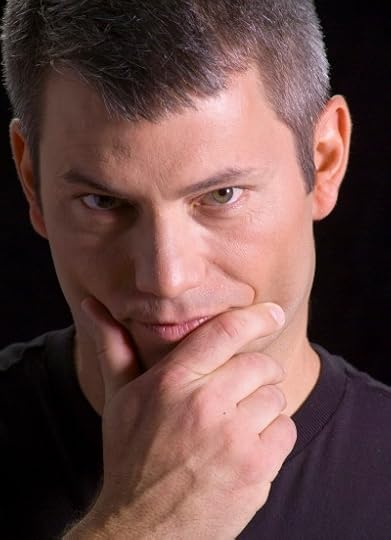
One of the best parts about being an indie author is meeting and finding you really like other indie authors. That’s happened to me over and over the past few years, and one of the authors I have come to consider a good friend is CJ West. We like to support each other when we can.
Last week, CJ put out a call for blog posts with the title “What Do You Do When the Going Gets Tough?” for his Wednesday posts. Of course, we all have different definitions of what “tough” is, and how we cope with it. Is it writers’ block? Is it he fact that we’re working like dogs but are not seeing the results we want? Is it that we’re running out of money, ideas, or something else?
I have a feeling CJ wanted us to define what “tough” is… so I did. He’s putting up my post on his blog today, and I’m putting up his. (We’ve done this before, btw. Call it a “Mutual Blogeration Society”)
It’s an honest, sad, but determined post, and I love it so much I might have to frame it. Here’s a link if you prefer to go direct. Otherwise, read on.
Keep Your Dream Alive
Some mornings I look in the mirror and even I think I’m nuts.
At one point or another, everyone who knows me well (except my brother) has told me I should give up writing and get a real job that comes with a regular paycheck.
I can’t count the number of times I’ve read, “The definition of insanity is doing the same thing over and over and expecting different results.”
My particular brand of insanity goes something like this:
Work all year on a book.
Pay for editing and cover art.
Publish.
Wait for money to come flowing in.
Earn back almost enough to pay for editing and cover art.
Repeat.
The vast majority of writers out there can relate to the sheer joy of the creativeprocess and utter befuddlement when it comes to marketing and sales. Most of us have no idea why some books sell and why some great writers struggle on in anonymity and poverty.
I don’t think you can truly appreciate the frustration until you’ve spent a year working on something that everyone tells you is great, yet still doesn’t sell.
For me marketing seems more like voodoo than science. I must say I’ve done a lot of fun things with book marketing and I’ve made some great friends on Facebook and at conventions. I’ve also been really fortunate to enjoy great feedback from readers. Those kind words above all are what has kept me going this long.
I often get comments from people who think I’ve gotten rich selling books. Some have even accused me of being greedy and only caring about money. That one really makes me laugh. For those financially minded among you, I’ll share some numbers.
I’ve been writing (and marketing) what amounts to a fulltime schedule for almost 12 years. This spring I broke even for the endeavor. Imagine a job you’d work at fulltime for 12 years without getting paid and you’ll have an idea how much I love writing. Another interesting number… This year I have given away 120,000 e-books. If everyone who took a free book this year sent me one dollar, I wouldn’t have to listen to Johnny Cash at 3:00 A.M.!
Needless to say, being an indie writer is hard. So I hope the next time you see a shabby-looking writer burning copies of Twilight in Barnes & Noble, you’ll think twice before turning him in.
It’s not just writers who have it hard in this economy. So many of us are really struggling to make ends meet, I thought I’d share some of the things that help me keep the faith when I’m feeling down.
The first thing that comes to mind every time I’m thinking of giving up is a saying by A.L. Williams, a direct marketer I crossed paths with in the 80’s. He said, “All you can do is all you can do.”
I don’t know why I always hear this saying when I’m down, but the quote has a special brand of circular logic. At first it tells you it is okay to give up if you’ve done all you can do. But then, just when you’ve rationalized selling your copy of Microsoft Word for gas money, you realize there is one more thing you haven’t tried. It works on me almost every time.
When that doesn’t work I pull out my Foreigner 4 CD and listen to the greatest song of all time.Jukebox Hero. How can you not love a song about a kid who finds passion listening at a concert hall door and then learning to play guitar? He makes it big and still loves what he does. And the song rocks!
There is one more song for extreme cases of it’s-time-to-give-up-itis. It’s Never Give An Inch by 38 Special. The song talks about how hardit is to make it when millions of people want the same dream. Sorry, this song isn’t on Youtube. You can find the lyrics here. Or you can play a sample on Amazon here.
I wonder if these artists had any idea people would be playing their songs for inspiration thirty years later. I guess that’s what art is all about and why we are willing to struggle so hard to make our own.
What inspires you to keep going when things get tough?
CJ is the author of many suspense novels, both stand-alones and a series, including these:
[image error][image error][image error][image error][image error]

And one last thing: My first Georgia Davis PI thriller, EASY INNOCENCE is FREE today and Thursday on Amazon. Hope you’ll take advantage!


